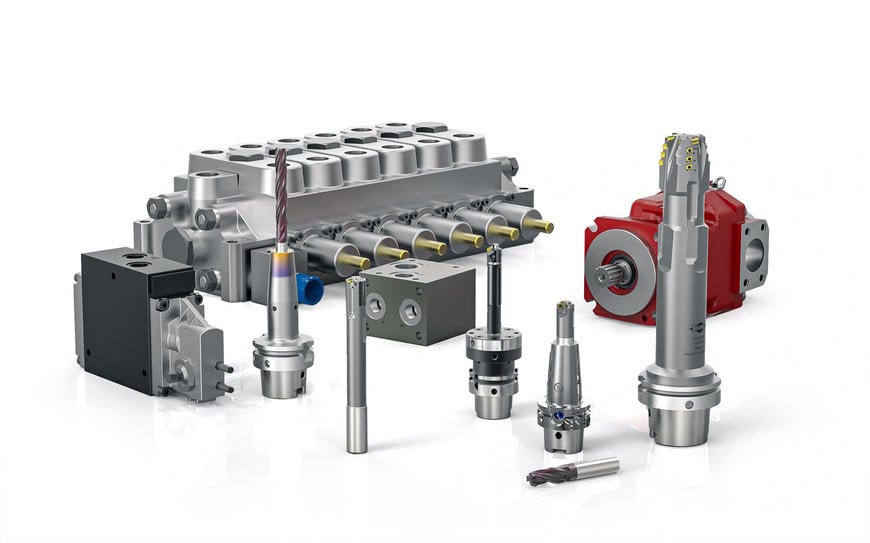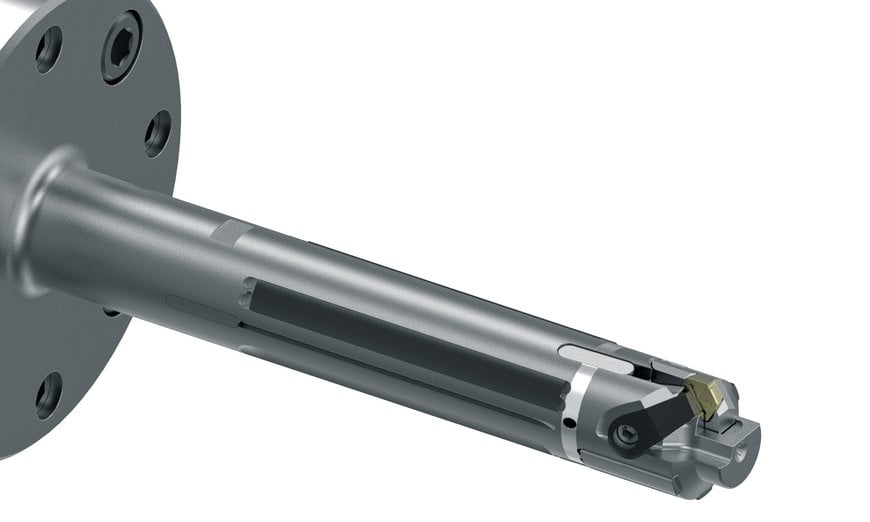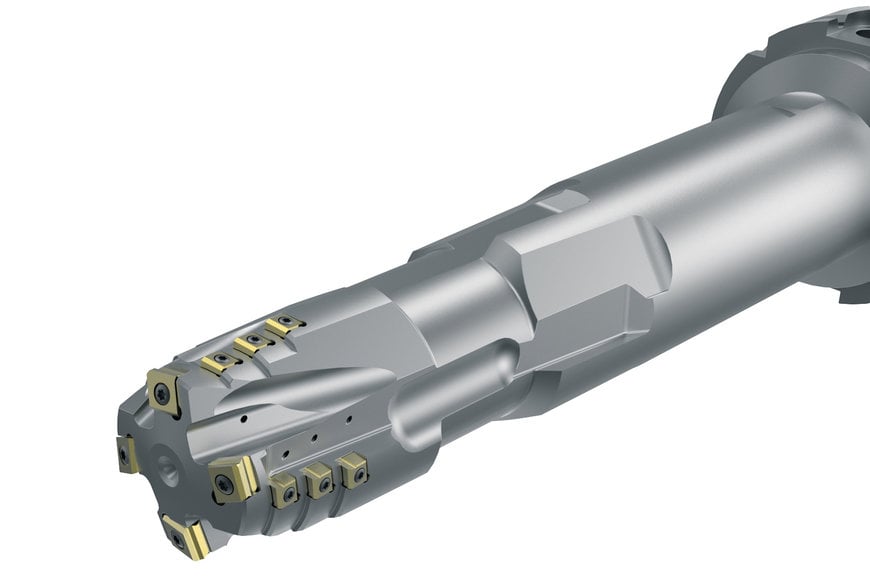www.industryemea.com
13
'21
Written on Modified on
MAPAL Focuses on Fluid Technology
In addition to drive systems and components, fluid technology is one of the most important supplier sectors for all industrial production. Going forward, MAPAL will manage this important area as an independent market segment.

For many years, customers have relied on the expertise of the tool manufacturer for demanding machining operations for hydraulic parts. However, as a solution provider, the tool manufacturer also has concepts for the cost-optimised manufacturing of the whole product.
Fluid technology products are used in a wide range of markets, such as mechanical and plant engineering, energy and environmental technology, automation technology, printing machines, woodworking machines, food and packaging machines, aerospace and shipbuilding. Driven by rising population figures worldwide, particularly agricultural engineering and construction machinery are absolute growth markets.
Germany is the technology leader
In an industry analysis, the VDMA confirms the high level of innovation in fluid technology from Germany. In terms of world trade, Germany ranks first, ahead of the USA and China, with an export quota of 60 percent, making it the world's most important supplier in this sector. The foreign production of many German fluid technology companies also enhances market penetration.
The prospect of a comparatively crisis-proof growth industry is by no means the only reason for MAPAL to focus more on fluid technology. The workpiece materials to be machined (cast iron, steel, stainless steels and non-ferrous metals) are ideally suited to the tool manufacturer's product portfolio. Over and above carrying out demanding machining steps, MAPAL can support the entire process worldwide here as a technology partner. "The customers' needs fit our MAPAL DNA," is the analysis of Jochen Schmidt, who heads up the General Machining segment. To him, being a technology partner means understanding both the customers' needs and the actual product and how it functions in the end product.
Fine work for the rough stuff
One such end product might be an excavator. Sitting behind a row of levers, the excavator operator becomes a virtuoso at his workplace. He usually operates two or three levers at the same time, not just to move the boom or bucket in one direction, but to implement complex sequences. Since superimposed movements are the rule, joysticks have often found their way into the cabs instead of rows of levers.
Irrespective of whether a lever or a joystick is being used, bringing loads weighing several tonnes to their destination with millimetre precision means that every single movement must be executed very precisely and reliably to ensure perfect interaction. Each lever is connected to a specific valve housing. The more functionalities the machine has, the more of these valves are installed in series. The number of parts that can be moved during excavation corresponds to the number of valve housings installed.

The required tolerances of the spool bore in terms of roundness (2.5 μm) and straightness (1 μm) are achieved in series production. ©MAPAL
Everything depends on the main bore
For Jochen Schmidt, manufacturing them is the supreme discipline in the world of hydraulics. For many years, MAPAL's expertise has been in demand for the spool bore in the valve housings. The gap dimension with the slide depends on the accuracy of this bore, which is very narrowly defined in modern hydraulic valves, so that the hydraulic oil can only flow in the required direction. The roundness, straightness and surface finish of this bore are also crucial.
The first machining step takes the varying quality of the cast blanks into account. Since the pre-cast bores are relatively imprecise, a precise pilot bore must first be created in the first ridge. This lays the foundation for creating a good cylindrical form in the subsequent machining steps. Next, a solid carbide tool or, in the case of the larger parts, a tool with indexable inserts passes through the entire bore. What the pilot drill has created for the first ridge is now produced along its entire length. To prevent ring formation in the hollow chambers due to propelled chips, MAPAL ensures a soft cut during machining by using tangential technology. This can eliminate the need for a separate washing cycle in the process.
After this pre-machining, the classic fine boring tool from MAPAL is used, finishing the bore extremely precisely. It has an adjustable cutting edge and guide pads, which prevent the tool from being displaced from ridge to ridge. This produces a high degree of straightness and an exact cylindrical form.
The different valve housings have different requirements. The fact that a three-stage honing process is added for some parts after the fine machining of the spool bore shows how high they can be. Since quantities in the sector are increasing and production capacities are often inadequate, honing has become an important issue. The workpiece usually has to be moved to another machine for this, which takes time, drives up costs and sometimes creates a bottleneck in the manufacturing process.

A tangential boring tool with indexable inserts from MAPAL carries out the pre-machining process reliably and significantly reduces the intervention times. ©MAPAL
Cost drivers are eliminated
Nonetheless, the bore quality can be improved with the MAPAL fine boring tool under certain circumstances, so that only a single-stage or two-stage honing process is required, or honing can even be dispensed with altogether. In many cases, where three stages are still needed, this process is considerably faster thanks to the good pre-machining. Any time saved pays off here. Although the hydraulics sector is characterised by extremely high component variance, the quantities in series production are in the millions.
MAPAL considers it important to identify and eliminate possible cost drivers. "As a technology partner, we have the product portfolio to be able to design the entire process for the complete component in line with requirements," assures Jochen Schmidt. In addition to the central spool bore, MAPAL also carries out the fine machining for the pressure balance bore and was able to completely replace honing here. With 2 µ for straightness and roundness, high accuracy is also required for this shorter bore.
High efficiency with standard tools
Machining hydraulic parts requires more than just expert and custom tools; it also involves different technologies that make economical machining possible even with the available standard portfolio. One example is provided by tangential roughing tools (TSW), which provide significant savings in peak times and a significant improvement in quality when pre-machining bores in valve housings for mobile hydraulics.
The parts are 500x500 mm valve blocks made of spheroidal graphite cast iron 50, with three piston bores to be machined from both sides, with a diameter allowance of up to 16 mm. MAPAL's tangential roughing tool produces short rip chips, preventing rings from being pressed into the gaps and then having to be removed at great expense. The operation time has been reduced by 15.33 minutes per part. The housings of the corresponding model were produced in a quantity of 500, which means a total time saving of 128 hours.
Machining the complete parts in the future is a strategic step for MAPAL. Whereas once there was a conflict of objectives in the industry between high productivity or the best possible quality, now they can both be reconciled with each other in a reliable process.
www.mapal.com

